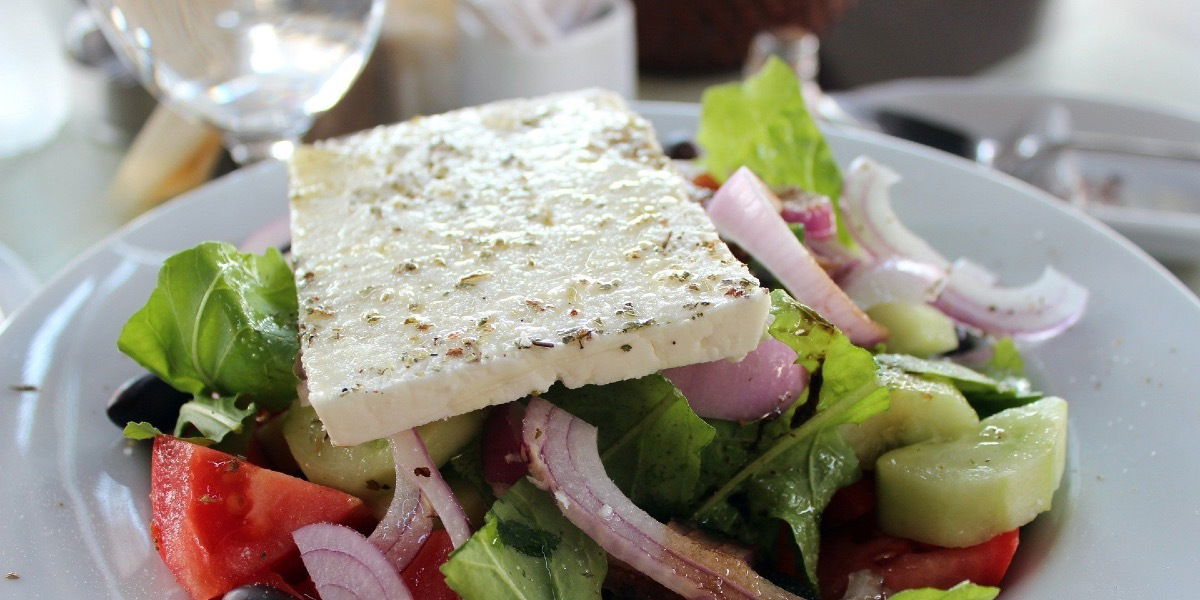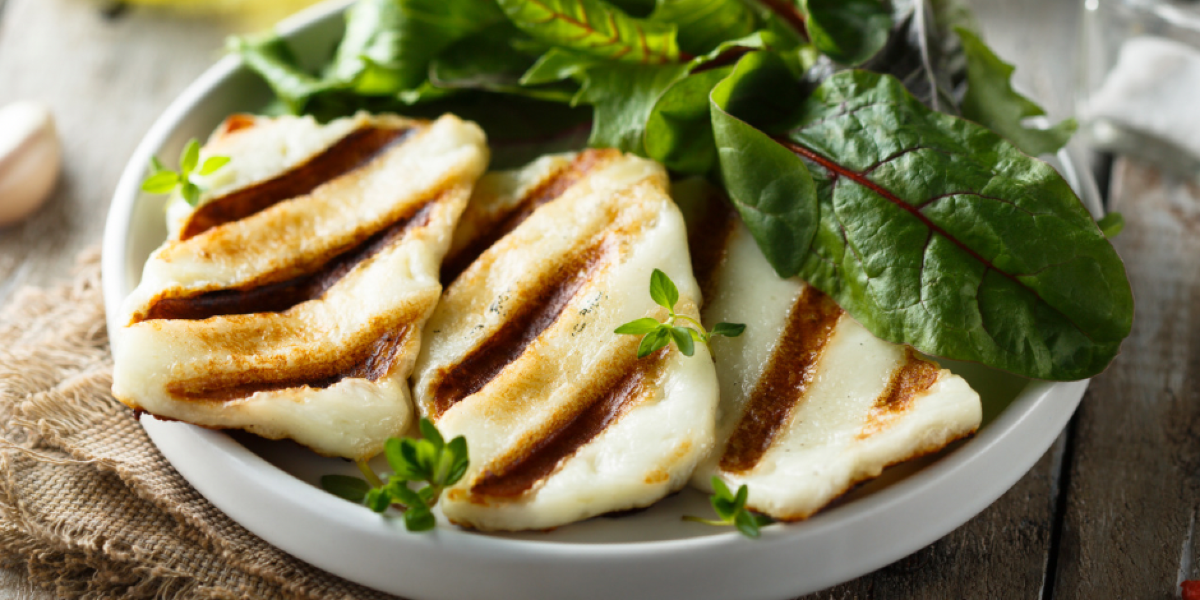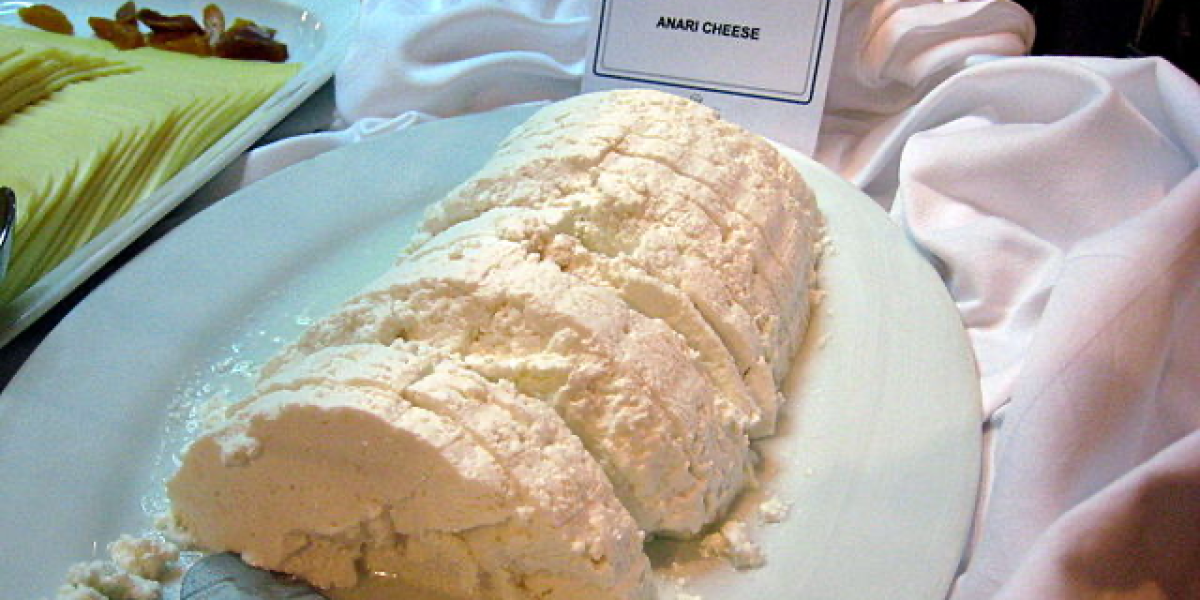Know Your Cheese
You may have noticed many of our recipes use a lot of cheese like; Feta, Kefalotyri, Anari, along with Greek yogurt, and other locally available alternatives. Well there is a very good reason for this.
This has been cultured from a combination of past hardships and religious traditions, which would mean that lot of the local delicacies are vegetarian by default. In order to maintain adequate protein and natural fats in the diet locally available cheeses and yogurt were commonly served with the dishes instead of meat. These were often cheaper, easier to produce or more available goat and sheep’s milk.

Although cheese often has a bad reputation, many of the traditional greek and Cypriot cheeses are have many health benefits and are good for you due to the way they are produced. Below there are some facts you probably didn’t know about some of the cheeses you’re familiar with.
Feta
Feta is a soft and but crumbly white cheese made from sheep’s or goats milk and stored in brine. This has a creamy mildly sour flavour, with a hint of sweetness. Feta’s history goes all the way back in Greece’s history and the method of production is even described in Homer’s Odyssey over 10,000 years ago!

Nutritional benefits
Due to the way it’s produced feta has a lower fat content than most cheeses and so it is lower in calories and high protein content at 14g per 100g of cheese. Feta like many cheeses is a good source of calcium but also many important vitamins and minerals. Out of you daily recommended intake, a single 100g provides 50% of your calcium, 70% in vitamin B2, 71% in vitamin B12 and 31% of your Zinc, along with other vitamins and minerals like phosphorous.
Health Benefits
When consumed together these nutrients are shown to improve bone structure, help reduce the risk of diseases, like diabetes and osteoporosis. Feta also contains a magic fatty acid, called conjugated linoleic acid (CLA). CLA helps reduce body fat and contributes to long term weight loss and good body composition. As well as this the vitamins and minerals also support a health nervous system, skin and immune system, provided by its probiotic qualities, which improve gut health.
Halloumi
Halloumi is a semi-hard brined cheese from Cyprus and traditionally made using goats or sheep’s milk but more commonly now with cows milk. It has a salty soured flavour and a rubbery texture similar to mature mozzarella. Unlike mozzarella it has a very high melting point and can be fried or grilled whilst still retaining its shape.

Nutritional benefits
The unique properties and high melting point of Halloumi are largely due to the high protein content and like Feta it has a lower sugar and carbohydrate. Its important to highlight that it retains most of the essential fats which means it’s comparable with ketogenic and paleo diets. It does however contain a high sodium level due to it being a brined cheese so moderation is key. Per 100g it contains 25g of protein 24g of fat and just 2g of carbohydrate. This does mean however it is higher in calories, at 315Kcal per 100g, but holds many vital mineral and vitamins. Out of your daily intake, 100g packs a whopping 80% of your calcium, 74% of phosphorous, 40% of iodine , 30% of vitamin B2 and 29% of you zinc.
Health Benefits
Uniquely halloumi is excellent in its ability to promote bone and muscle repair and growth which is why it has become popularised for many athletes and fitness professionals for post workout recovery. the When consumed together these nutrients are shown to improve bone structure, help reduce the risk of diseases, like diabetes and osteoporosis. Feta also contains a magic fatty acid, called conjugated linoleic acid (CLA). CLA helps reduce body fat and contributes to long term weight loss and good body composition. As well as this the vitamins and minerals also support a healthy nervous system, skin and immune system, provided by its probiotic qualities, which improve gut health.
Anari
Anari is a mild creamy style Cypriot soft cheese made from goats or sheep’s milk. It is similar to ricotta and is one of the lesser know cheese, despite it being a bi-product of halloumi production. It has been growing in popularity due to its suited pairing with many Cypriot pastries and sweets such as shamishi and bourekia.

Nutritional benefits
Its soft texture and sweeter flavour are due to its lower fat, protein and salt content, meaning it also has less calories. Per 100g it contains 9g of protein 9g of fat and 10g of carbohydrate. This does mean however it is higher in calories, at 160Kcal per 100g, but holds many vital mineral and vitamins. Out of your daily intake, 100g packs a whopping 80% of your calcium, 74% of phosphorous, 40% of iodine , 30% of vitamin B2 and 29% of you zinc.
Health Benefits
Because of its low fat high protein content Anari cheese is, much like cottage cheese, is often praised by dieticians for weight loss and promoting good body composition.